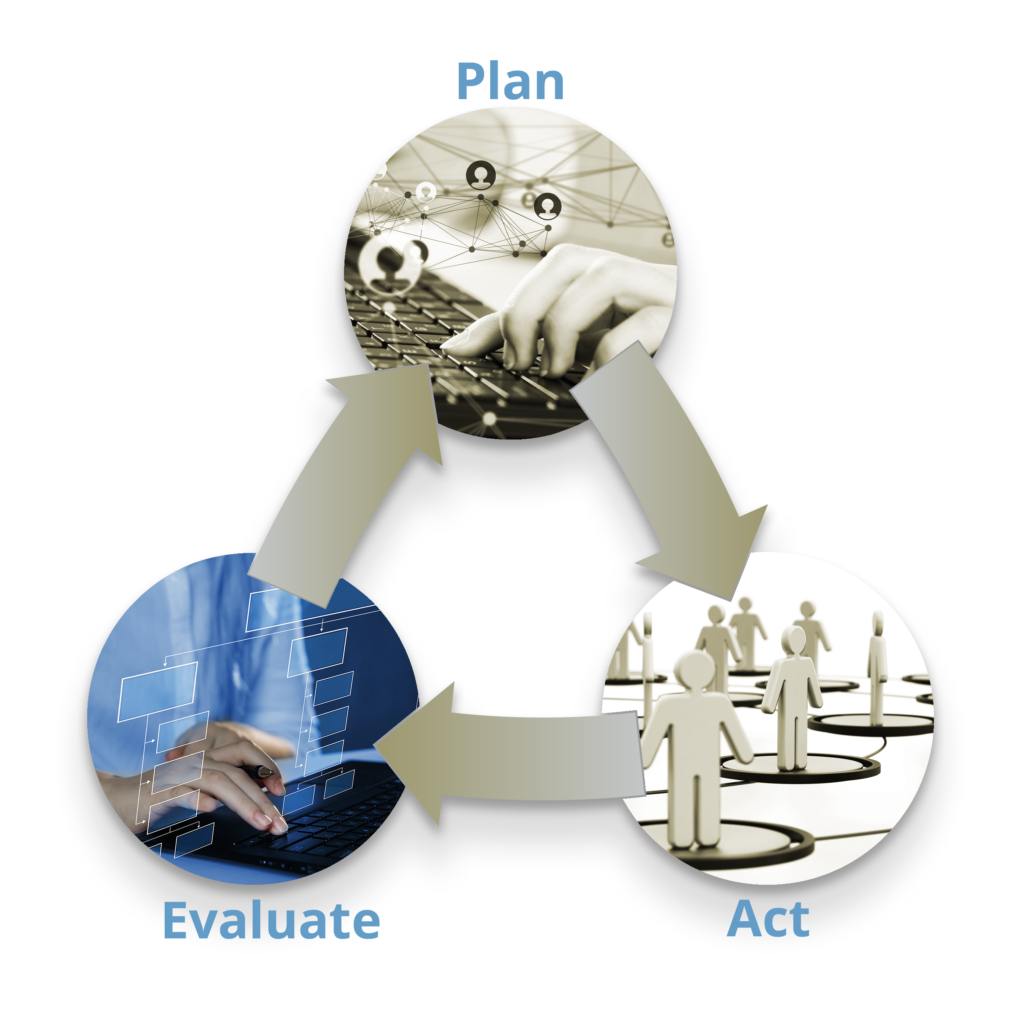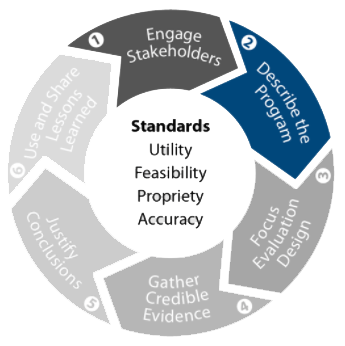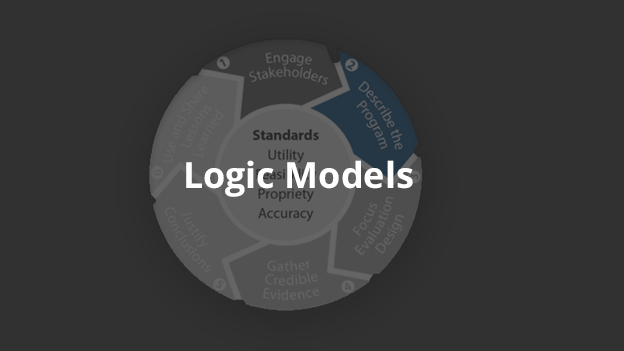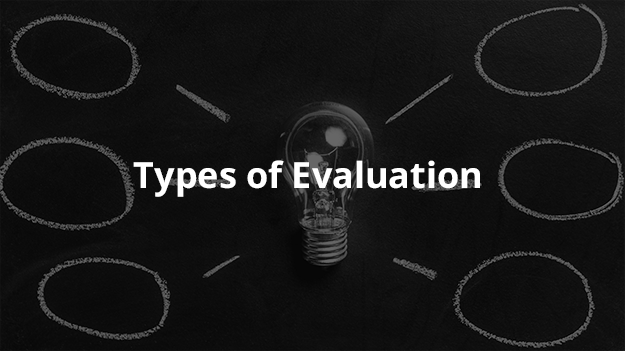
Evaluation Overview
Last Updated: March 2022
In public health, evaluation is a process used for assessing and improving programs. According to the CDC, evaluation is defined as a “systematic method for collecting, analyzing, and using data to examine the effectiveness and efficiency of programs, and, as importantly, to contribute to continuous program improvement.”

CDC Framework for Program Evaluation in Public Health
CDC’s Framework for Program Evaluation summarizes the essential elements of program evaluation, provides a framework for conducting effective program evaluations, clarifies steps in program evaluation, reviews the standards for effective program evaluation, and addresses misconceptions regarding the purposes and methods of program evaluation.

The six steps are connected and can be used as a starting point for developing an evaluation for a specific public health effort at a particular time. The early steps establish a foundation for the evaluation effort.
Learn more about the CDC Framework:
- CDC Framework for Program Evaluation (webpage)
- Framework for Program Evaluation in Public Health (MMWR Article)
Select a section you want to learn more about:
Toolkit Resources
Get more insights by using our toolkit resources.
Go to Resources
Glossary
Learn the definition of the key words being used.
Go to Glossary
Thanks
Thank you, to all of our contributors.
View our contributors

the public’s health.
Contact Us
Have any questions or recommendations, you can contact us at overdose@cste.org


